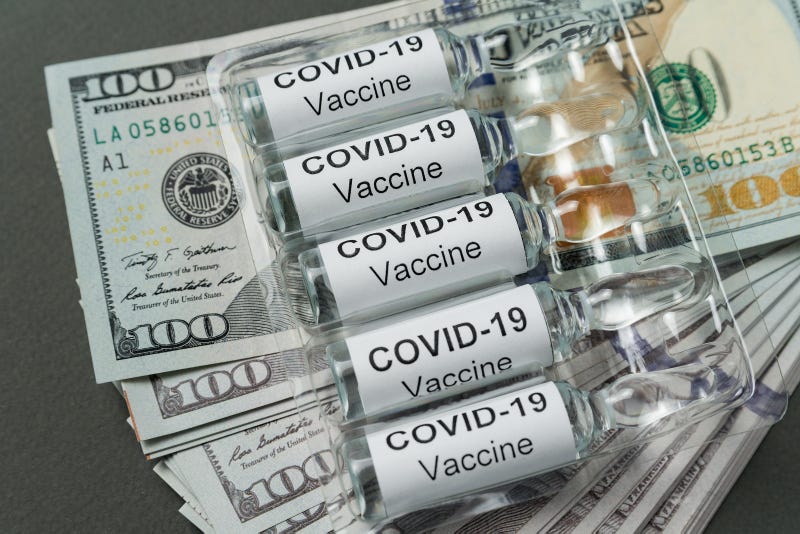
CHICAGO (WBBM NEWSRADIO) -- As the rollout of the COVID-19 vaccine continues, scammers have been quick to take advantage of the situtation.
According to the Better Business Bureau of Chicago and Northern Illinois, the BBB Scam Tracker has been getting reports of cons ranging from calls phishing for personal information to phony messages claiming you need to pay to guarantee your dose.
If you are currently eligible to receive the vaccine, be sure to double-check any messages before sharing personal information.
“Scammers follow the latest news and always look for opportunity, and the high emotions of fear and hope make COVID vaccines a perfect target fraud," said Steve Bernas, President & CEO of BBB of Chicago and Northern Illinois.
Con artists have already impersonated the Centers for Disease Control and Prevention (CDC) and the World Health Organization (WHO) in phishing emails that claim to have news about the disease. BBB has also seen an increase in scams using robocalls to impersonate government officials. In addition, people marketing fake vaccines have also been reported.
How the Scam Works:
You get a phone call, social media message, or an email saying that you are eligible to receive the COVID-19 vaccine. It appears to comes from a friend, a public health official, or someone from a local hospital or clinic. You start to schedule your appointment, but you quickly find there’s a catch. The person who contacted you needs personal information or requires you to pay upfront.
For example, in one version reported to BBB Scam Tracker, a phony caller claimed that they need your Medicare number and home address.
“I gave [the scammer] my Medicare number and confirmed my name and address,” one victim reported. “He said he was going to come out to my house to administer the [COVID-19] test, and then the vaccine, but he never showed.”
In another version, scammers are impersonating people on social media, contacting their “friends,” and claiming that – if paid – they can “guarantee… the vaccine ASAP.”
In yet another version, scammers are offering vaccine shots for as low as $150, on apps and through email.
No matter what scammers insist, be sure to check it against information from your local government or official news sources. Even if you don't pay up, sharing personal information with scammers opens you up to the risk of identity theft.
How to Spot a Coronavirus Vaccine Con:
Know your region’s plan for rolling out the vaccine. In the United States, each state has its own process for dispensing the vaccine. Check with your local government or health department. Understanding the process in your area and how you can expect to be contacted will help you spot a scam.
• Research carefully: Scammers are very creative, so be skeptical of anything that seems too good – or crazy – to be true. Double-check any information about the vaccine with official news sources, and be aware that none of the vaccines can be currently purchased online or in stores.
• Check with your doctor: If you want a vaccine early, reach out to your healthcare provider about your options. If you don't have a primary care physician, check out your local health department's official website for more information.
• Guard your government-issued numbers. Never offer your Medicare ID number, Social Security number, health plan information, or banking information to anyone you don’t know or trust.
Think the link may be real? Double-check the URL. Scammers often buy official-looking URL domains to use in their cons. Be careful to ensure that the link destination is really what it claims to be. If the message claims to be from the local government, make sure the URL ends in .gov
If you’ve spotted a scam (whether or not you’ve lost money), report it to BBB.org/ScamTracker. Your report can help others avoid falling victim to scams. Find more information about scams and how to avoid them at BBB.org/AvoidScams.


